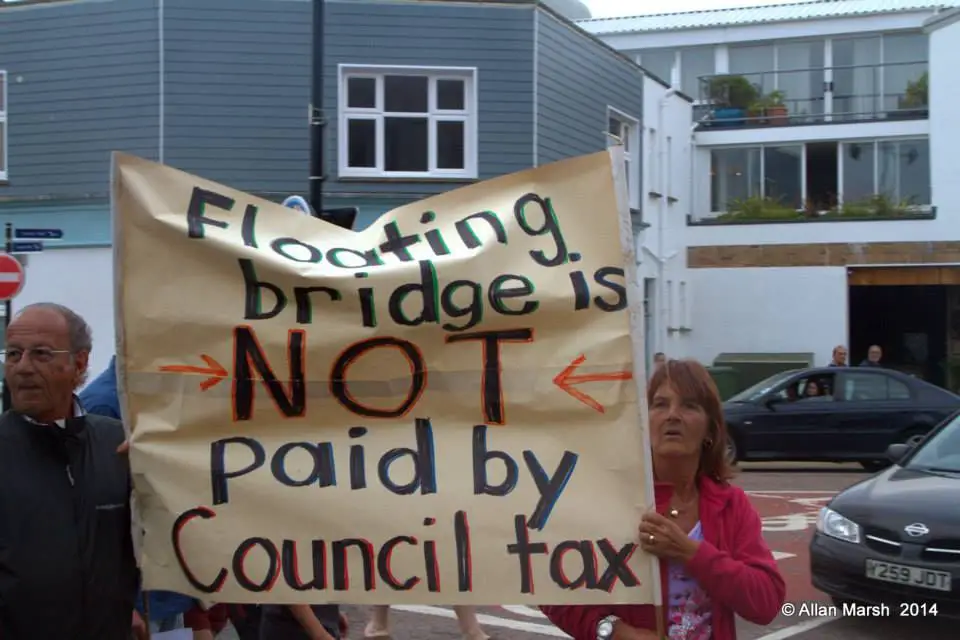Campaigners against the proposed introduction of 50p each way fares for foot passengers and cyclists (over 18s) on the Floating Bridge at Cowes have today released paperwork setting out what they believe are flawed calculations and thinking by the Isle of Wight council.
‘Flawed’ calculations unchanged prior to consultation
Earlier this year, two Isle of Wight councillors challenged the calculations presented by officers to the council Executive, arguing they were flawed and should be corrected prior to the public consultation.
In September, the council went ahead with the consultation, which was instantly labelled ‘completely biased’ by residents and businesses. There was no change to the calculations in the papers.
What’s in the paperwork?
This new paperwork released by campaigners – who include residents, businesses and local councillors – provides the detail, they say, for those in power to question what has previously been put in front of them by officers.
Campaigners argue the Council’s recommendation to charge pedestrians will result in an additional burden on the council’s coffers, not revenue raising as papers had forecast.
They highlight the following:
- The floating bridge is NOT paid by Council Tax; it is publicly run, but privately funded by the vehicle tolls AND makes extra money for the IW Council, a profit ranging from £75,600 to £447,528 (see spreadsheet)
- Charging pedestrians would affect the local businesses, which drastically affects the island’s the UK’s economy (to be explained in detail in a follow-on correspondence).
- Ian Stephens, Leader of the IW Council, stated there is full funding from Central Government (through the Solent LEP) for a new floating bridge.
‘Economically unviable’
Campaigners go on to say the plans to charge foot passengers will backfire if implemented.
They say it would be due to:
- An increased expenditure on potential pedestrian ticket collection and manufacture
- A reduction in the number of vehicles using the bridge, due to newly slowed crossings (lose current monies)
- Loss of pedestrians/cyclists using the bridge for non-essential journeys (change in behaviour) due to a combination of ticket purchase queuing, slower crossings due to ticket collection, and additional cost to the pedestrian/cyclist that is either unaffordable or undesirable.
- Pensioners opting to use their bus passes to travel to Newport or to Cowes/East Cowes – rather than pay the possible £1 return on the floating bridge – would cost the IW Council a lot of money, increasing dramatically the IWC’s payments to Southern Vectis for concessionary bus fares.
Consultation “should be invalidated”
Campaigners have provided simple examples (see pg 4 of document below) of where ‘inconsistent and incorrect IW Council budget numbers’ are ‘heavily misleading’.
They go on to say
“The consultation content, wording and questions have been changed several times during the course of the consultation being administered, so the results no longer can be compared. The consultation also has only been made available online and with interviewers on the floating bridge, not in paper copy in shops where pensioners (in particular) can access them. There is no accessibility for people with no internet access, and there is a high risk of fraudulent answers (eg stuffing the ballot box) due to how it has been administered. For these reasons and many others, the consultation should be invalidated.”
Both documents are embedded below for your convenience. It’s worth taking the time to read through them.
Click on the full screen icon to see larger version
Click on the full screen icon to see larger version





